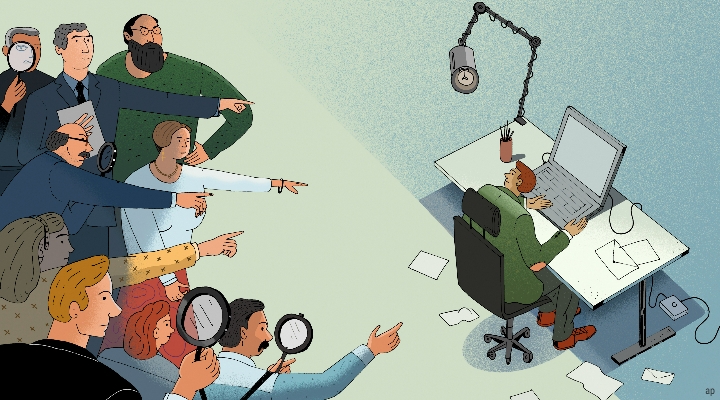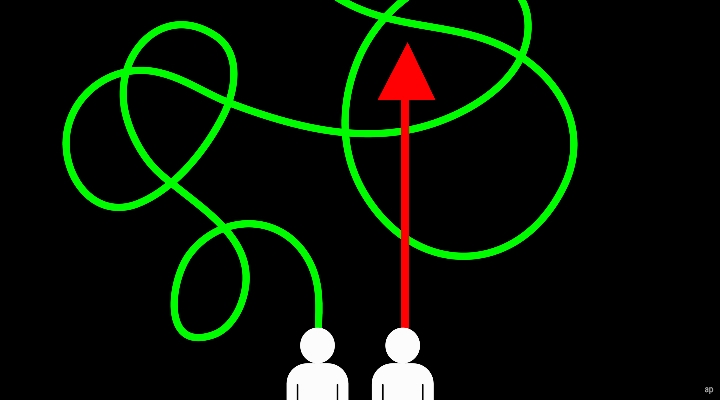
The relationship between shame and avoidance is not news. But you may be surprised to see how it impacts your finances.
A 2021 paper in the Journal of Organisational Behaviour and Human Decision Processes describes how financial shame can lead people to avoid important financial information, creating a vicious cycle that increases financial hardship.
Data from six studies showed evidence of this feedback loop in cross-sectional, experimental, and longitudinal designs. The effect of shame on behaviour was also shown to be different from that of guilt. Unlike shame, guilt did not seem to prompt financially avoidant behaviour.
Psychologists have known for some time that shame can increase avoidant behaviours. However, there have been only a handful of studies investigating whether this pattern is seen in the specific area of personal finance and, if so, how it affects one’s bottom line.
The research team in this case wanted to learn if shame specific to financial hardship would set off a negative feedback loop by activating avoidant financial behaviors. This is what the team found.
What Is a Financial Shame Spiral?
A financial shame spiral is a vicious cycle between feelings of shame and financial hardship, fuelled in part by shame-induced, avoidant behaviours.
The viciousness of the cycle comes from the fact that if your resources are already strained, then avoiding pertinent information can make things worse through missed payments, fees, penalties, and accumulating interest.
When debt is piling up, inaction is costly. Those costs compound as financial shame prompts financial avoidance, which increases financial hardship, which intensifies shame. Ad infinitum.
Financial shame spirals can become a poverty trap, keeping people stuck for years or longer, and eroding their well-being and health. Since anyone can get caught in a shame spiral, it’s worth knowing what to look out for and how to break the cycle once it starts.
What Does Financial Avoidance Look Like?
It’s true that in some cases, ignoring your finances has a benefit. Savings and investment plans, once set on their course, are often best left to run without frequent interference.
Spending and borrowing, on the other hand, need to be monitored and examined with some frequency to ensure they don’t become a threat to your long-term goals. For our purposes here, we can understand “financial avoidance” to mean avoiding or delaying difficult financial realities and tasks.
Some years back, I was counselling a small-business owner who was coming to terms with the need to file for bankruptcy. She looked terrified as she whispered "my name will be in the paper. Everyone will know." The shame she felt, and the judgment she anticipated from her community, had kept her from acting to better her situation.
She needed debt relief, but she believed rejection would be the cost of that relief, and so she stalled. She is not the only one. Repeated studies have observed that bankruptcy stigma deters people from filing even when doing so would be in their financial best interest.
Financial avoidance can take many forms, some of which look like:
- ignoring mail and email;
- not answering the phone;
- repeatedly putting off financial tasks;
- not checking balances;
- hiding the truth of one’s situation from otherwise trusted friends and family.
Financial shame isn’t limited to those facing insolvency. Some people will downplay or justify investment losses to avoid being thought a fool (by others or themselves), thereby failing to find the lessons in the loss.
Some will overspend and sabotage savings goals to avoid telling friends that the restaurant, trip, or activity is out of budget. Avoidance lowers psychological pain in the short run, but since it does nothing to fix the underlying problems, they grow worse.
How Guilt Is Different
Guilt is notably different from shame, psychologically, and it prompts different types of behaviour. Guilt focuses on the negative aspects of a specific behaviour, whereas shame judges the person who took the action. In short, when guilt says "I did a bad thing," shame says, "I am a bad person." Shame promotes withdrawal behaviours like avoidance, and guilt prompts proactive behaviours like apology and reparation.
How Can I Break the Cycle?
The good news is that there appears to be a method for breaking the loop, giving hope to people in danger of being sucked into a poverty trap. What’s more, it’s a psychology trick, so it’s free, and anyone can use it.
Given the social nature of financial shame, the research team (mentioned at the outset of this article) hypothesised that a thought exercise reminding people of positive aspects of themselves might weaken or counter the feeling of shame, thereby reducing the motivation to withdraw. Prior work in this area has found that "…affirming valued aspects of the self, reduces defensive processing and self-protective but counterproductive behaviours…affirmation allows individuals to face threatening information in a constructive way, rather than spend mental energy on avoidance, suppression, and rationalisation."
Essentially, the idea is that since shame puts focus on negative aspects of the self, prompting withdrawal, then a reminder of one’s positive qualities may dull the sting, allowing the person to stay present to the situation and face up to the difficult realities and tasks at hand.
The researchers randomly assigned 748 people to one of three groups as follows:
- Group 1 (Values): ranked 11 values in order of importance to them, and expounded on their most important value;
- Group 2 (Kindness): recalled and described times when they were kind to others;
- Group 3 (Control): ranked jelly bean flavours and described the one they liked best.
After this, everyone answered four questions to measure financial shame and four questions about withdrawal.
The results showed no effect of the values exercise on financial shame or withdrawal. The kindness exercise, however, did have a significant buffering effect on financial withdrawal, with those reporting the greatest financial shame seeing the largest benefit.
This experiment demonstrated the potential buffering effect of a thought exercise on financial well-being and behaviour. It may seem strange to apply psychological theory and employ self-affirming thought exercises to one’s finances, but when emotions are clearly driving a behaviour, an emotional intervention makes sense.
It should go without saying that when you or someone you know is facing financial hardship, feeling financial shame, or exhibiting financially avoidant behaviours, it’s probably best to avoid judgment, ridicule, pointing out mistakes, or otherwise adding more shame to the fire.
Instead, it may be worth investing five minutes in redirecting attention to one or two acts of kindness you (or they) have performed in the past. Reflecting on the positive aspects of our selves is generally good for mental health and well-being, and it may help financial health, too, by empowering people to face up to difficult realities and tasks that need attention.
Summary
Shame is a known result of financial hardship. Financial shame makes people more likely to avoid information, leading to inaction and counterproductive actions. In turn, this increases financial hardship, thereby increasing shame, producing a negative feedback loop that can lead to poverty, depression, and even suicide.
We can break financial shame spirals by focusing on positive aspects of our selves—specifically, an act or two of kindness—to fuel a stronger and more positive outlook and reducing avoidant behaviours so we can get busy fixing what’s broken and getting back on track to our goals.
Sarah Newcomb is director of financial psychology at Morningstar




























